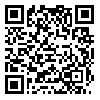Mon, Feb 16, 2026
| فارسی
Volume 25, Issue 1 (Spring 2019)
IJPCP 2019, 25(1): 84-95 |
Back to browse issues page
Download citation:
BibTeX | RIS | EndNote | Medlars | ProCite | Reference Manager | RefWorks
Send citation to:



BibTeX | RIS | EndNote | Medlars | ProCite | Reference Manager | RefWorks
Send citation to:
Kehtari Harzangh L, Poursharifi H, Heshmati R. Comparison of Impulsivity and Experiential Avoidance in Obese Individuals With and Without Binge Eating Disorder. IJPCP 2019; 25 (1) :84-95
URL: http://ijpcp.iums.ac.ir/article-1-2885-en.html
URL: http://ijpcp.iums.ac.ir/article-1-2885-en.html
1- MA., Department of Psychology, Faculty of Education and Psychology, University of Tabriz, Tabriz, Iran.
2- PhD. in Health Psychology, Associate Professor, Department of Clinical Psychology, University of Social Welfare and Rehabilitation Sciences, Tehran, Iran. ,ha.poursharifi@uswr.ac.ir
3- PhD. in Health Psychology, Assistant Professor, Department of Psychology, Faculty of Education and Psychology, University of Tabriz, Tabriz, Iran.
2- PhD. in Health Psychology, Associate Professor, Department of Clinical Psychology, University of Social Welfare and Rehabilitation Sciences, Tehran, Iran. ,
3- PhD. in Health Psychology, Assistant Professor, Department of Psychology, Faculty of Education and Psychology, University of Tabriz, Tabriz, Iran.
Abstract: (6706 Views)
Objectives This research aimed to compare impulsivity and experiential avoidance in obese individuals with and without Binge Eating Disorder (BED).
Methods We obtained data from 60 severely obese women referring to health centers and gyms. They were selected by convenience sampling method. The participants completed Gormally Binge Eating Scale (BES), Barratt Impulsiveness Scale (BIS), and Bond Acceptance and Action Questionnaire (AAQ). The obtained data were analyzed by the discriminant analysis method.
Results Among 5 investigated components in two groups of with and without binge eating disorder, the components of non-planning impulsivity (P<0.01), and emotional avoidance and control (P<0.05) were found significant.
Conclusion In the two groups of with and without binge eating disorder, the components of non-planning impulsivity, emotional avoidance and control were found significant. This means that significant differences exist between individuals with and without binge eating disorder.
Methods We obtained data from 60 severely obese women referring to health centers and gyms. They were selected by convenience sampling method. The participants completed Gormally Binge Eating Scale (BES), Barratt Impulsiveness Scale (BIS), and Bond Acceptance and Action Questionnaire (AAQ). The obtained data were analyzed by the discriminant analysis method.
Results Among 5 investigated components in two groups of with and without binge eating disorder, the components of non-planning impulsivity (P<0.01), and emotional avoidance and control (P<0.05) were found significant.
Conclusion In the two groups of with and without binge eating disorder, the components of non-planning impulsivity, emotional avoidance and control were found significant. This means that significant differences exist between individuals with and without binge eating disorder.
Type of Study: Original Research |
Subject:
Psychiatry and Psychology
Received: 2018/12/1 | Accepted: 2018/11/3 | Published: 2019/04/1
Received: 2018/12/1 | Accepted: 2018/11/3 | Published: 2019/04/1
| Rights and permissions | |
 |
This work is licensed under a Creative Commons Attribution-NonCommercial 4.0 International License. |






